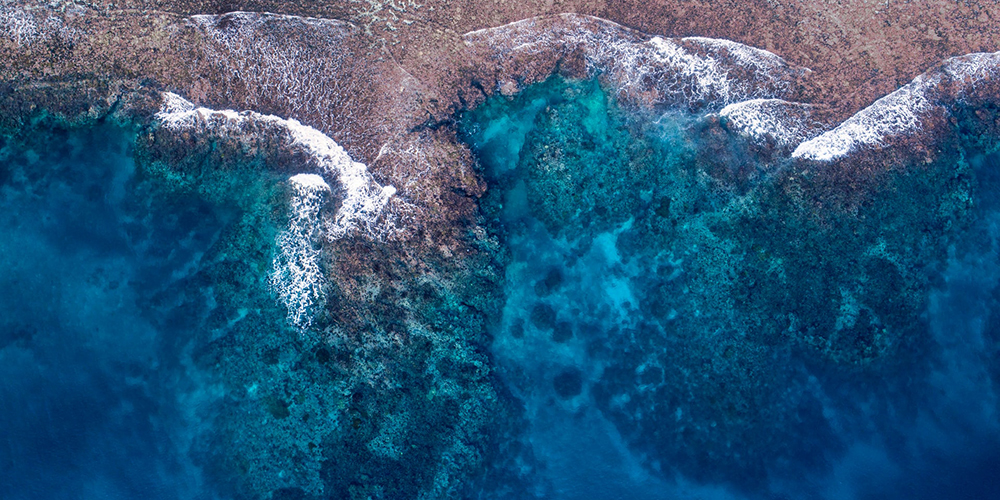The International Science Council announced today the appointment of an eight-member Liaison Committee that will strengthen integration of scientific knowledge from Small Island Developing States into the Council’s activities.
Following a call for nominations from members, the Council is delighted to announce the appointment of eight distinguished scientists to the Small Island Development States (SIDS) Liaison Committee. The Committee comprises scientists with diverse experience at the science-policy nexus, each based in different Small Island States around the world. The Committee will be consulted on strategic matters, such as mobilizing input from the SIDS scientific community for the UN Decade of Ocean Science in Sustainable Development. Members will also work to bring other matters to the attention of the ISC or its advisory committees, so that representation of the SIDS scientific community is strengthened across the Council’s activities.
Small Island Developing States (SIDS) – sometimes referred to as Great Ocean States – are some of the most vulnerable countries in the world, and are recognized by the United Nations as a specific priority group of countries. Their small size, remoteness and limited resource bases mean that they tend to share a number of unique challenges for sustainable development. The SIDS are also particularly vulnerable to the impacts of climate change and to natural disasters, which may become more frequent and more intense in the future. In addition, whilst the UN SAMOA (SIDS Accelerated Modalities Of Action) Pathway highlights the importance of science and technology for these countries, science institutions in SIDS countries often have limited capacity.
The Committee, chaired by ISC President-elect Peter Gluckman, is expected to strengthen the ISC’s efforts to mobilize the scientific community in Small Island Developing States, and to ensure that research on and from the SIDS is brought to the attention of global policy makers.
Chair:
- Peter Gluckman, trained as a paediatrician and biomedical scientist and holds a Distinguished University Professorship at the Liggins Institute of the University of Auckland. He also holds honorary chairs in University College London, University of Southampton and National University of Singapore (where he acts as chief science advisor to the Singapore Institute for Clinical Sciences). He has published over 700 scientific papers in perinatal and developmental physiology, neuroscience and endocrinology, evolutionary biology and medicine. He has authored both technical and popular science books. He chaired the WHO Commission on Ending Childhood Obesity (2014-2017).
The members selected from nominations are:
- Dania Bacardi, Senior Specialist in Experimental Toxicology and Regulatory Affairs at the Center for Genetic Engineering and Biotechnology (CIGB), and Titular Professor of the University of Medical Sciences in Havana, Cuba.
- Xavier Estico, Chief Executive Officer of the National Institute of Science Technology and Innovation (NISTI), Seychelles
- Terrence Forrester, Chief Scientist for UWI SODECO (Solutions for Developing Countries) and Professor of Experimental Medicine, Faculty of Medical Sciences, University of the West Indies (UWI), Jamaica.
- Teatulohi Matainaho, Chief Science Advisor to the government of Papua New Guinea, and Chairman of the Papua New Guinea Science and Technology Council.
- Saui’a Louise Mataia Milo, Dean of the Faculty of Arts at the National University of Samoa
- Michelle Mycoo, Professor of Urban and Regional Planning, The University of the West Indies, St. Augustine, Trinidad and Tobago
- Vidushi Neergheen, Associate professor in the Department of Health Sciences and Centre for Biomedical and Biomaterials Research at the Faculty of Science of the University of Mauritius
- Morgan Wairu, Acting Director of the Pacific Centre for Environment and Sustainable Development (PaCE-SD) at the University of the South Pacific (USP)
The Committee will meet virtually several times a year, and updates on its activities will be shared with ISC members and via the Council’s website. The Committee is expected to be in place up until 31 December 2021, when it will be reviewed.
Photo by Stacie Lucas on Unsplash.
